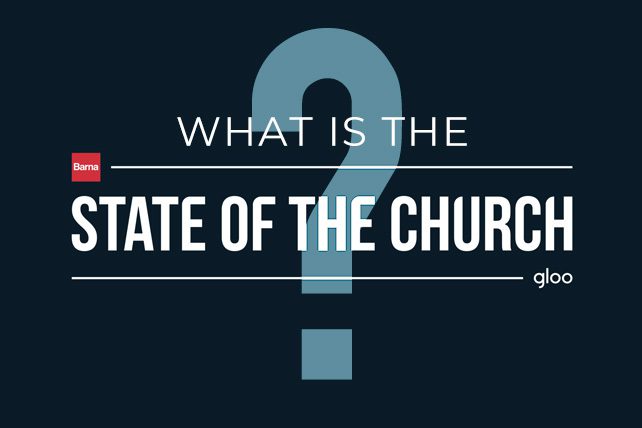Barna Group has studied the U.S. Church since 1984, tracking evergreen metrics—attendance, tithing, Bible reading—while expanding into discipleship, human flourishing, digital engagement, and evangelism. In 2020, they relaunched State of the Church with refined tools like ChurchPulse, and in October 2024 partnered with Gloo on State of the Church 2025, emphasizing monthly data, human flourishing (seven dimensions), and church thriving (15 dimensions). Here’s an overview of what State of the Church has revealed about the Church in America.
State of the Church Reveals…
1. Practicing Christians Were in Steep Decline
A Barna report over 96,000+ surveys across 20 years (pre‑2020) found practicing Christians—those who identify as Christian, regard faith as very important, and attend church within 30 days—dropped from 45% in 2000 to 25% by ~2019, effectively halving Barna Group. This underscores the ongoing secularization trend not only in loops but in committed participation.
2. Today, A Renewed Commitment to Jesus
Amid secularization, a paradoxical spiritual uptick is emerging:
-
66% of U.S. adults now report a personal commitment to Jesus that remains important today—a 12-point surge from the pandemic low of 54% in 2021.
-
That translates to roughly 30 million more adults claiming Jesus-following since 2021 Barna Group+2Barna Group+2RNS+2.
-
David Kinnaman (Barna CEO) notes:
“Undeniably, there is renewed interest in Jesus… this is the clearest trend we’ve seen in more than a decade pointing to spiritual renewal”
-
A Religion News Service summary echoed that this figure is the highest since 2013 RNS.
Thus, while church attendance and formal affiliation drop, a growing number are connecting personally with Jesus.
RELATED: BIBLE-CENTEREDNESS FOR THE NEXT GENERATION: FINDING NEW JOY IN THE OLD, OLD STORY
3. Generational Shifts: Youth-Led Revival
The resurgence is led by younger cohorts:
-
Gen Z: male commitment to Jesus up +15 ppt between 2019 and 2025.
-
Millennials: male movement +19 ppt over the same period.
-
Older cohorts—Gen X and Boomers—saw comparatively flat levels.
-
Uniquely, many new followers identify as committed to Jesus without claiming the “Christian” label—nearly 30% of non-Christians report a personal commitment to Jesus, a near all-time high.
This suggests the spiritual renewal is youthful, male-led, and often decoupled from traditional Christian identity.

